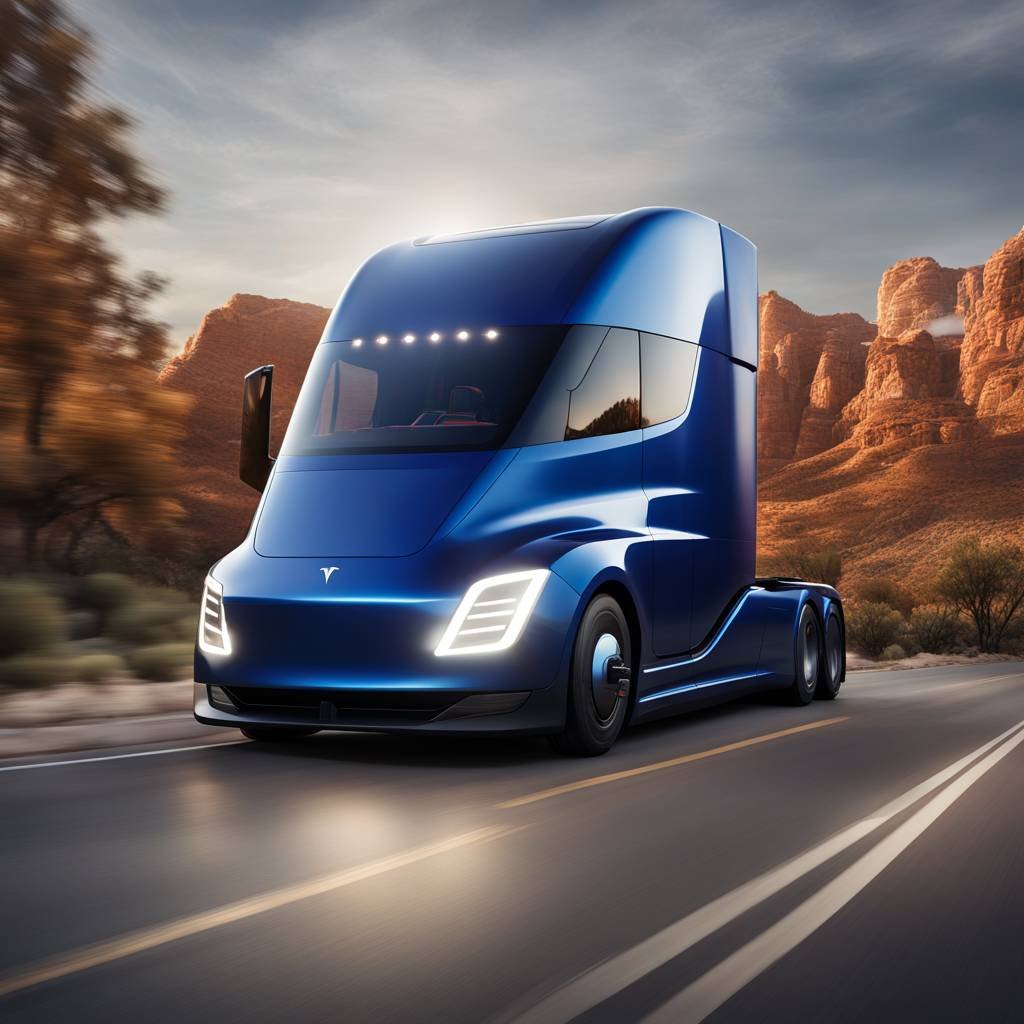Tesla has produced around 140 units of its all-electric Tesla Semi Class 8 rig since production began at the end of 2022. The company never released official production figures for the vehicle, but CEO Elon Musk initially aimed for an annual production of 50,000 units in 2024. However, due to battery supply constraints, the company does not expect to start higher-volume production until late 2024. The slow production ramp-up has resulted in only about 140 units being built so far.
The Tesla Semi Class 8 truck is still not in mass production, with only around 140 units built to date. Of these, about 100 units are being used by Tesla itself, with 36 going to one of its largest customers, PepsiCo. Despite the slow production of the Semi, Tesla faces other challenges, such as a decline in growth in its passenger vehicle business. While PepsiCo made initial payments for 100 units of the Semi in 2017, they have only received 36 units as of early April. Other customers, such as UPS and Asko Norway, have reserved units but have not received their orders yet.
Logistics company Martin Brower claimed to have used two Tesla Semis for deliveries as part of a pilot program, and Tesla itself has a fleet of about 100 Semis. These are likely to have been built between March and December of 2023, based on information from March of that year. UPS reserved 125 units of the Semi, and Asko Norway put a deposit for 10 trucks in 2017, but neither company has received their orders yet. Tesla’s Semi is facing competition from the Freightliner eCascadia, which offers half the driving distance on a full charge but is more widely available.
For companies that ordered the Tesla Semi to reduce their carbon footprint, the lack of deliveries has forced them to turn to other truck makers. The Freightliner eCascadia, made by Daimler Truck, has become a popular alternative due to its wider availability. UPS, Walmart Canada, Sysco, and Schneider National have dozens of eCascadia rigs on the road, with Schneider alone using nearly 100 units. Despite having a shorter driving range than the Tesla Semi, the eCascadia has become the preferred choice for many companies due to its availability and efficiency.
The slow production of the Tesla Semi has raised concerns among customers who were hoping to transition to electric trucks for environmental reasons. While Tesla aims to ramp up production by late 2024, the current pace of production has resulted in only a small number of units being built. This has led to delays in deliveries for customers like PepsiCo and logistical challenges for companies like UPS and Asko Norway. Ultimately, the success of the Tesla Semi will depend on the company’s ability to increase production and fulfill orders in a timely manner to meet the growing demand for electric trucks in the market.



